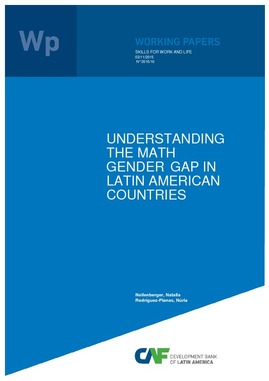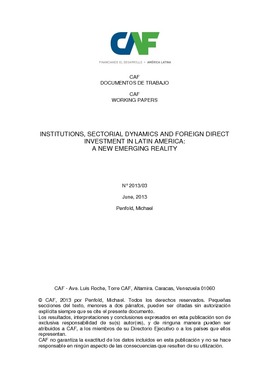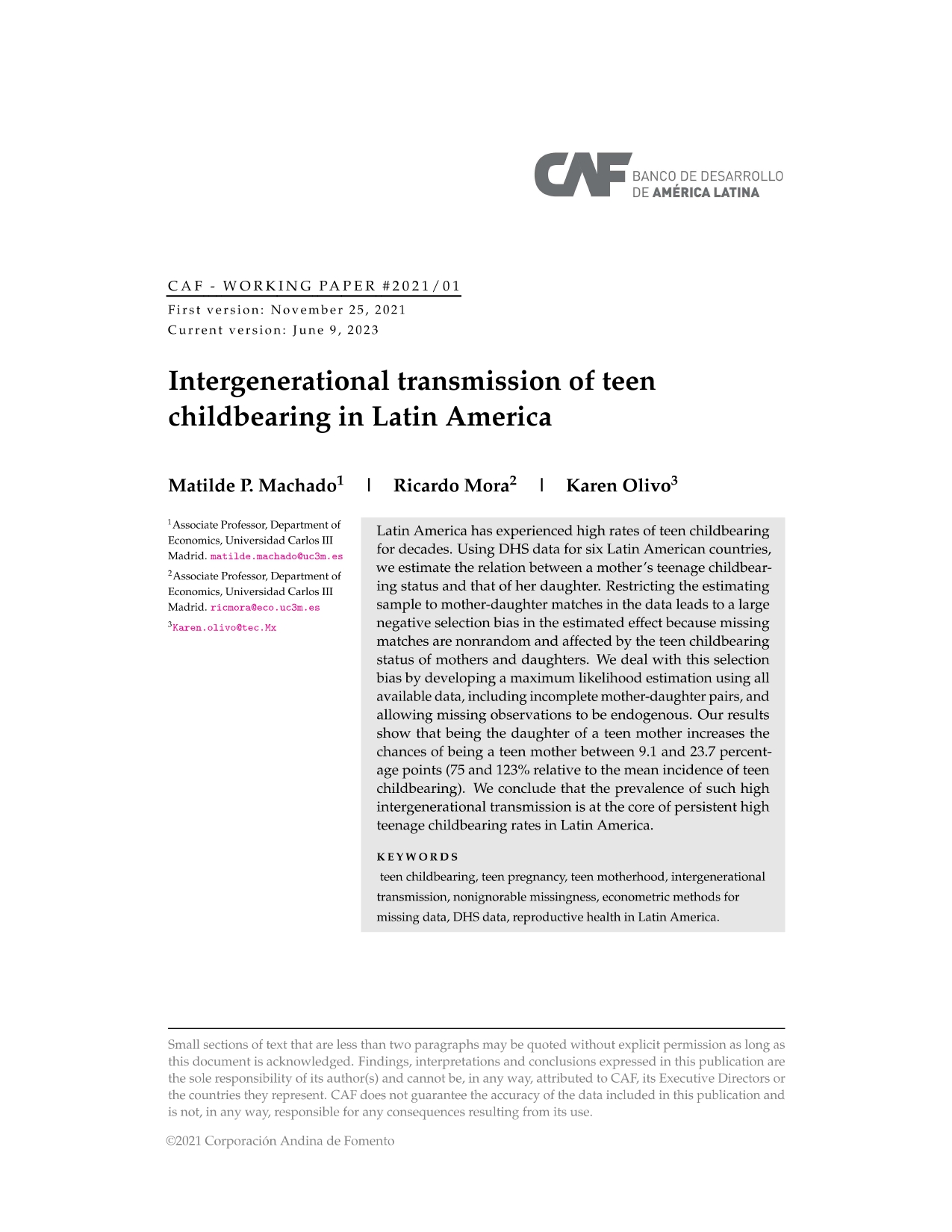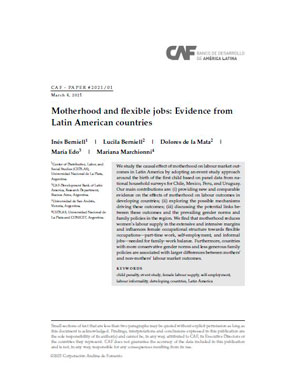Understanding the Math Gender Gap in Latin American Countries
Resumen
This paper documents that the math gender gap in Latin America is larger than in other developing or developed countries and that such gap do not decrease after controlling for individual, family and school characteristics. Using individual variation across eight Latin American countries for which PISA collected a very rich set of questions related to mathematics in 2012, we then analyze the role played by alternative (yet potentially complementary) socialization theories in explaining the math gender gap. We only find evidence that differential parents’ expectations on math for girls’ and boys’ career and differential girls’ and boys’ own perception of math self-efficiency, self-concept, and anxiety matter, as they are associated with between 8 and 30 percent of the math gender gap. Second, pooling 2006 to 2012 PISA waves and exploiting time and cross-country variation, we explore the influence of societal factors on the math gender gap in eleven Latin American countries, finding that those Latin American countries with greater gender-equality in both the labor market and tertiary education, as well as higher economic development in the country, have a smaller math gender gap.
Materia
País / Región
Fecha
2015-12Citar de esta publicación
Item perteneciente a la Colección
Autor
Nollenberger, NataliaRodríguez-Planas, Núria
Items Relacionados
Institutions, sectorial dynamics and foreign direct investment in Latin America: a new emerging reality
Despite uncertainties in the global economy, Latin American countries have attracted a significant amount of Foreign Direct Investment (FDI) in recent ...
Intergenerational transmission of teen childbearing in Latin America
Using DHS data for six Latin American countries, we estimate the relation between a mother’s teenage childbearing status and that of her daughter. ...
Motherhood and flexible jobs: Evidence from Latin American countries
We study the causal effect of motherhood on labour market outcomes in Latin America by adopting an event study approach around the birth of the first ...






